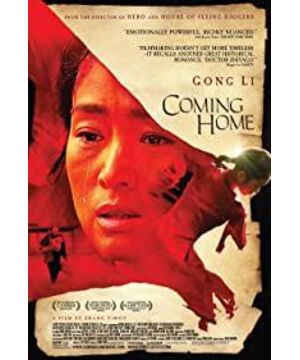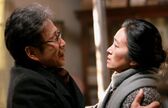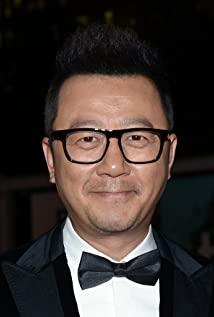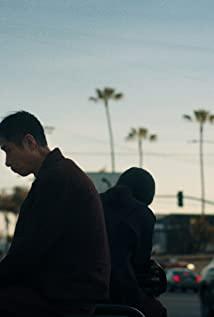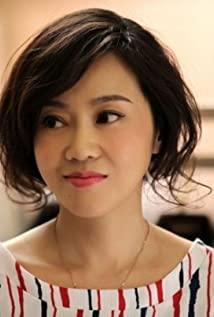It is generally recognized that the limitations of "scar literature" are very obvious: they are relatively superficial in their thinking, and their denials of the Cultural Revolution are not profound enough; artistic expressions are also relatively naive, and the language of many novels is obviously not free from the vocabulary of the Cultural Revolution. But this can be attributed to the limitations of the times after all.
The original novel by Yan Geling on which "Return" is based is obviously not such a work, but Zhang Yimou succeeded in reducing the cruelty of Jiabiangou to the level of scar literature, and incited it fiercely. Lots of love. The film is okay on the technical level, it is an outdated and old-fashioned skill, stupefied to film a cruel story that can move China. Sitting in the cinema, I sneered, but I couldn't deny that I was moved by a few shots. For example, Lu Yan read the letter he wrote to Feng Wanyu (but failed to send it) in the past, and read a letter saying that spring is coming, the mare gives birth to the foal, and the prisoners tie the foal's leg with a rope. It pulled out of its mother, and when the little pony stood up tremblingly from the ground, Lu Yanzhi suddenly felt that spring had come. This is almost the most vivid description of spring I have ever heard. My eye sockets were slightly wet at the time... But no, he went to jail, not a spring outing. Is it appropriate to be so lyrical?
The details of the movie can't stand scrutiny abound. Not to mention that the family members of the rightists (political prisoners) who were reformed through labor were able to keep multi-room houses and pianos throughout the 1960s and 1970s. When Lao Lu was "rehabilitated", his wife would not let him in, and the neighborhood committee could now arrange a vacant room. For him, the housing problem is too simple, right? Since Lao Lu ran back and was captured, Feng Wanyu has never closed the door of the room again—doesn’t you recruit thieves if you don’t close the door? Don’t tell me that during the Cultural Revolution and the early days of the reform, my country’s urban security can reach the state of keeping the doors closed. If that is the case, designer Deng launched the two "severe crackdowns on criminal crimes" (referred to as "strikes") in the early 1980s. Isn't nothing wrong? When the prisoner ran all the way in the train station crowd, and my police officers chased him all the way, no one tripped or threw him down along the way. Is the class struggle consciousness of our revolutionary masses so weak?
These omissions in details do not seem to be accidental, but rather carefully designed. The purpose is to smooth out contradictions and conflicts as much as possible, and to put a warm color on that period of time, so as to squeeze a little warmth from the blood and tears of the past. . Just like in the second half of the movie, after Dandan moved home to live, there was a scene where she used a three-purpose machine to broadcast the tape of "Red Detachment of Women" (so advanced at that time!) and dance Wu Qinghua to Lao Lu and Feng Wanyu. Isn't this a fake reunion? The surplus value of the suffering in the first thirty years has been squeezed out without any leftovers. Zhang Guoshi is truly a national teacher.
In fact, the real contradiction in this whole story is that Feng Wanyu both anticipates and fears the return of Lu Yanzhi because of her loss of virginity. Feng Wanyu was forced to rape by Lao Fang, a member of Lu Yanshi’s task force and a worker master (as a price for “not condemning Lu Yanshi to death”), and the relationship between the two should have lasted for a while before Dandan could see the old man. Fang used a rice spoon to beat her mother's childhood memory-under what circumstances would he use a rice spoon to beat it? Explain that there are cooking and eating together, and in front of children. ——So Dandan's psychology is also distorted. In fact, for their mother and daughter, Lao Fang and Lu Yanzhi have a considerable degree of overlap: they are both Feng Wanyu men. So Feng Wanyu confuses Lao Fang and Lu Yan after her amnesia. She "waits for Godot" and waits for Lao Lu to return on the 5th of next month. Subconsciously, she does not dare to face herself as "Lao Fang's woman". Embarrassing identity to welcome the return of Lao Lu; and Dandanzhi’s rejection of Lu Yanzhi was not only out of drawing boundaries, but also a rejection reaction: in her first memory, her mother’s man was Lao Fang, and Lu was instead Latecomers. The code for this movie is: Sexual rights are a manifestation of politics. This is no different from the predecessor of "Dongfanghong", "White Horse Diao": a progressive redistribution in the name of "revolution", "38 shots, no cover, no wife in the Eighth Route Army, wait until it lays down Yulin Cheng, hu'er hey, one girl and one student." There is a professor who is dignified and his wife was given in the name of the party by a master worker, and he was still writing letters that could not be sent out in the dark one by one at the Northwest Labor Reform Farm. Such a cruel story has been watered down in the movie to the point where there is nothing left but... uh, love.
Once contradictions and conflicts are wiped out, the cruelty will be dispelled by warmth. Zhang Yimou's "Return", in a word, is: use amnesia to dissolve the Cultural Revolution, and then consume the Cultural Revolution. Even the "Cultural Revolution" itself was emptied. Although the film was selected to be released on May 16th, the date when the "May 16th Notice" was passed in 1966, which symbolized the beginning of the Cultural Revolution, the whole story is related to the period when Lu Yanzhi escaped back from the Cultural Revolution. Lu's failure was due to In the 1950s, the plot of "suppressing and suppressing counter-revolutionaries" after the return belongs to the early stage of the reform. The "Cultural Revolution" has become an abstract and general reference in the first thirty years. Just as Feng Wanyu lost her memory, she didn't need to face Lu Yanzhi's return.
Zhang Yimou cut a short plot of "Lu Fu Yanzhi" and turned it into a touching story of amnesia and love. This is inferior to the scars movie. He is playing with scars. It seems that although he was fined several million for "social maintenance", Zhang Yimou has never lacked "reconciliation" to the party state.
View more about Coming Home reviews


